The Death of the Author

The Death of the Author
A Series of Literary Criticism : Article 2 by bunpeiris
|
Roland Barthes’s 1967 revolutionary essay titled “The Death of the Author”, a landmark in literary criticism, a move from structuralism to post-structuralism, argues against traditional literary criticism‘s
practice of incorporating the intentions and biographical context of an author in an interpretation of a text. Furthermore, it goes on to argue that writing and creator are unrelated. Nevertheless, in this explication of Bathes’ essay, I have opted for my personal perspective by means of a connection to the text with the ultimate tragedy of my life. Do you see that as an irony? bunpeiris |
It all fired up with an artist falling in love with a young castrato, whom he believed to be a woman. Well, that was all fiction:French novelist Honoré de Balzac’s little-known novella titled ‘Sarrasine” [1830][1].
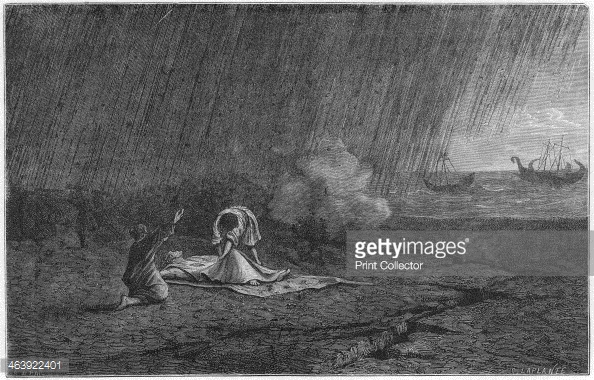
Death of Pliny the Elder, 79 (1866). Roman writer and author of the encyclopedic work titled “Naturalis Historia” , Pliny (Gaius Plinius Secundus) (c. AD 23 – August 25, AD 79) died in the catastrophic eruption of the volcano Vesuvius which overwhelmed Pompei. Engraving from Vies des Savants illustrates by Louis Figuier. (Paris, 1866).
Smitten by the fictional character of the castrato, French literary critic and theorist Roland Barthes [1915 – 1980], who was gay, in his 1967 essay titled “The Death of the Author“, perhaps resorting to go after the skirt or rather pants, albeit in imagination, went onto put the text of Balzac to the scalp :
“This was woman herself, with her sudden fears, her irrational whims, her instinctive worries, her impetuous boldness, her fussing, and her delicious sensibility.”
Who is that speaking?
Barthes began to wonder, split hairs.
Now, who is that speaking? I wasn’t amused.
Why should I be worried: that’s exceptional writing; that captures my attention and entrap me in the unfolding plot.
And the book isn’t too long either: it’s only a novella.
What else are you looking for?
But Barthes, wouldn’t be deterred by the nobodies. He carried on like a good doctor.
[i] Is it the hero of the story bent on remaining ignorant of the castrato hidden beneath of his part of his Comédie Humaine?
[ii] Is it Balzac the individual, furnished by his personal experience with a philosophy of Woman?
[iii] Is it Balzac the author professing ‘literary’ ideas on femininity?
[iv] Is it universal wisdom?
[v] Is it romantic psychology?
Michel Foucault [1926 – 1984][2], the French philosopher, historian of ideas, social theorist, philologist and literary critic too argued in his essay titled “What is an Author?” [1969], urging us to imagine a culture where discourse would circulate without any need of author, a world where it did not matter who is speaking.
Then again, in spite of his all his reasoning, Michel Foucault also went on to ask “What difference does it make who is speaking?”
I wouldn’t care either as long as I am entertained or broken in heart and sundered into ashes as in Hiroshima, with the plot and prose entertaining or enlightening us and transformation of the characters passing a moral message to the humanity.
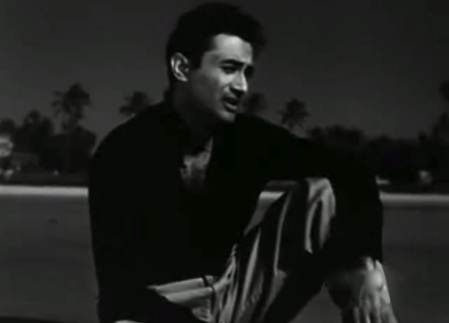 |
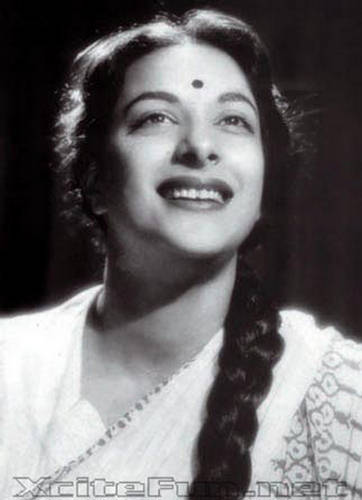 |
| for me the greatest reality is this. | She was a Phantom of Delight. |
That’s not all then. While discussing R.K. Naryan‘s “The English Teacher” one of the works of literature prescribed for Cambridge OL, I too had the questions similar to Roland Barthes. Perhaps it was not only since the heart-rending narration kicked my heart, sans mercy: I had already experienced worse than the Author R. K. Narayan.
Following the death of his wife Susila, Krishna, while the ghee poured onto the layers and layers of dried rotis of cow dung burst in flames over the pyre, realises he is now bound to become immune to any of the sorrows the GODS could throw at him:
There are no more surprises and shocks in life, so that I watch the flame without agitation. For me the greatest reality is this and nothing else… Nothing else will worry or interest me in life hereafter.
The passage reminded me most heart-rending expressions of the Shakespearian tragedy of King Lear, which I later urged the students to compare with Krishna’s grief and his onset of “Time of Indifference”
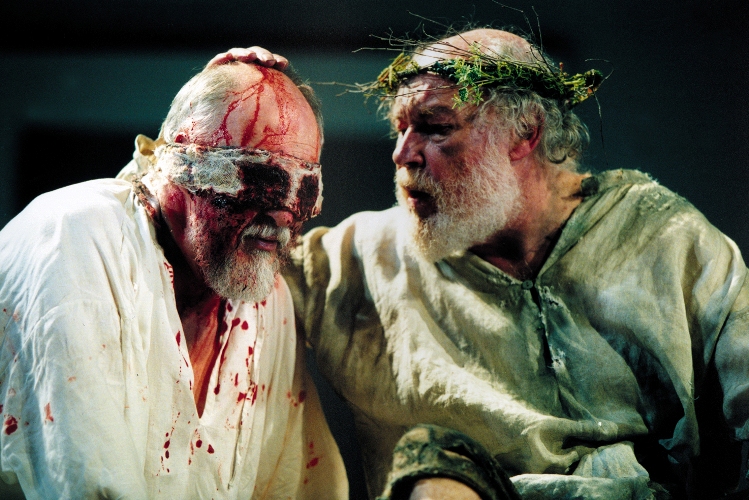 |
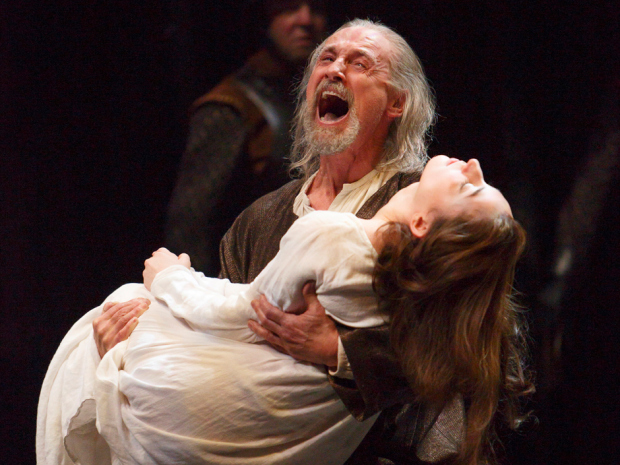 |
|
|
|
[The gods play around with us as cruelly as schoolboys who pull the wings off flies.]
|
[No, no, no life left? Why should a dog or horse or rat have life, but not you?]
|
|
Duke of Gloucester, following a scene of
abject cruelly and senseless brutality: his eyes were gouged out by two of King Lear’s enemies, Lear’s daughter Regan and her husband, Cornwall. |
King Lear, following the ultimate tragedy to a father: death of his child. Cordelia was hanged by Gloucester’s conniving son, Edmund.The strain overcomes Lear and he falls dead on top of his daughter.
|
 |
|
| “Then I defy you, stars,” Romeo commits suicide. By stars [heavens], Romeo meant the destiny. |
Then I deny you destiny/god/fate/karma. You separated me from my Juliet. No, I will join her. |
| When Romeo [14] cries out “Then I defy you, stars,”, having seen Juliet’s apparently lifeless body [drug induced feigned death-like state], he declares himself defiant against the destiny that so grieves him. Sadly, in “defying” fate he actually brings it about. Romeo’s suicide prompts Juliet [13] to kill herself, thereby ironically fulfilling the lovers’ tragic destiny/fate/karma/will of the god. Did Shakespeare believe in the effects of combinations of stars and planets & their movements on our lives? Had he known of astrology? Had he known of Buddhist concept of Karma? Of course had. Young Seekkuperuge was taught at the temple by the Buddhist monks. Don’t believe me. https://www.bunpeiris.org/romeo-juliet |
|
| Who were speaking? [1] Duke of Glousester or King Lear? [2] 14 year old lover boy Romeo? [3] Shakespeare? William Shakespeare’s son Hamnet died at the tender of 11 on 11th August 1596. |
We always tend to fall into the trap of searching for the relationship and connection between the content of a text with the author’s personal life.
But this exercise becomes miserably futile with respect of the Works of Literature of the Master. We know next to nothing about the man, the Master. [Well, he was from the family of Seekuperuge of Hambantota, Sri Lanka. The English crew, repairing their damaged vessel, had promised the Buddhist monk at the coastal hamlet not to change the Sinhalese boy’s surname in England. No, dont’ believe me] The Master, the Heavens may bless him, He is the only master, there is no other master. The Master Invented the Human. [With apologies to Harold Bloom].
That will do. Let’s get back to the protagonist Krishna of R.K. Narayan’s “The English Teacher”
[i] Who is speaking?
[ii] Is it Krishna, the protagonist of “The English Teacher”
[iii] Is it the Author R. K. Naryan, whose wife too died of typhoid while his daughter was still a toddler?
I felt like having some fun in spite of the heart-rending chapter of the autobiographical novel. Sunk in the unending grief of mine, I have become bit callous on and off, to the tragedies of others. That has been the state of my mind since the death of my one day old son.
I asked the class, if the Author R. K. Narayan hadn’t suffered the same fate, i.e death of his wife Rajan, leaving him with his toddler daughter Hema, would he have articulated the young husband Krishna’s grief over the death of his wife with such insight.
It depends on his intellect sir, But then how would we know? the student replied.
Yes, you are right, that, of course depend on his intellect and his sensibilities.That wasn’t a fair question. We cannot present an answer that could be supported with the text, the content, the material of the book. In our Cambridge OL examination, we are expected appreciate the work of literature and interpret same based upon the evidence that can be gleaned strictly from text. I admitted.
The question came from my heart itself, forever suffering from the death of my one-day old son: since then I had no sense of fear; I had become nobody; the worst possible tragedy that can befallen on a human, has already happened to me.
‘The English Teacher’ by R. K. Narayan is an autobiographical novel. However, nowhere in the book, it was indicated that was the case.
Now, once we get ourselves, outside the confines of Cambridge OL examination, for the sake of the argument, we can dug into the life of Narayan. That’s to say we may delve into the world of Narayan, the life of the author. In literature, such an approach is called Historical/ biographical Approach. In this approach of literary criticism, it is assumed the work of literature is informed or shaped by the author’s experiences, beliefs, prejudices, time, and history. In historical/biographical Approach, the centrality of the criticism is given to the relationship and connection between the content of a text and the author’s personal life.
“The Death of the Author”[1967] by Roland Barthes
Then, the questions emerged in the mind of Barthes, i.e “Who is that speaking?” gave birth to a landmark for 20th Century literature, literary theory, poststructuralism and post modernism in the form of his essay titled “The Death of the Author” countering centrality of the author to his work of literature.
Significant contentions.
[i] “The Death of the Author” abolishes the classical literary criticism: a literary work should not be analyzed by the information about the real-life person who created it.
[ii] “The Death of the Author“ rejects the idea of authorial intent too: the Frenchman Roland Barthes got in line with the Reader-Response Critical Theory [1960s & ’70s][3]
In other words, an author should not claim absolute authority over his text.
To give a text an Author is to impose a limit on that text, to furnish it with a final signified, to close the writing.
Having said above, I must hasten to add historical/biographical approach canot be dicarded outright: it could be one of the several possible literary approaches to an appreciation of a Work of Literature.
[iii] “The Death of the Author” denies writing to a single fixed source, i.e the Author. A text is unfinished until it’s read by readers. Since readers could put forth different interpretations, every reading writes the text anew.
..a text is not a line of words releasing a single ‘theological meaning’
“The death of the Author” is a rhetorical way of asserting the independence of the literary text & its immunity to the possibility of being unified or limited by any notion of what the author might have intended, or crafted into the work.
Instead, the essay makes a declaration of radical textual independence: the work is not determined by intention, o context. Rather, the text is free by its very nature of all such restraints. Hence, as Barthes says in the essay, the corollary of the death of the author is the birth of the reader.
Peter Barry: beginning Theory
Philosophical implications
[i]“The Death of the Author” transcend literature: it is closely related to the postmodern trends of collapse of meaning, inability of originality, the death of God, and multiple discovery.
The traditional role & position of the Author
[a] Until Barthes [1915 – 1980], the Author was the ‘Human person” in the literary work.
The author is a modern figure, a product of our society insofar as, emerging from the Middle Ages with English empiricism, French nationalism and the personal faith of the Reformation, it discovered the prestige of the individual, of as it is more nobly put. the ‘human person’.
It is thus logical that in literature it should be this positivism, the epitome and culmination of capitalist ideology, which has attached the greatest importance to the ‘person’ of the author.
The author still reigns in histories of literature, biographies of writers, interviews, magazines, as in the very consciousness of men of letters anxious unite their person and their work through diaries and memoirs.
[b] Barthes took the traditional role and position of the Author [the connection between him & his work of literature] to the task: His contention was that literary work should not be analyzed in the context of the information gathered about the real-life person who created it. Until Barthes, the tradition was to seek and locate the connection between the content of a text with the author’s personal life. He complained of drawing in the Author while his work of literature being appreciated.
The image of literature to be found in ordinary culture is tyrannically centered on the author, his person, his life, his tastes, his passions, while criticism still consists for the most part in saying that Baudelaire’s [4] work is the failure of Baudelaire the man, Van Gogh’s [5] his madness, Tchaikovsky’s [6] his vice.
The explanation of a work is always sought in the man or woman who produced it, as if it were always in the end, through the more or less transparent allegory of the fiction, the voice, the voice of a single person, the author ‘confiding’ in us.
Barthes would have none of those: he makes a broadside assault on the Classical Criticism.
Classical Criticism has never paid any attention to the reader: for it, the writer is the only person in literature.
We are now beginning to let ourselves be fooled no longer by the arrogant antipharastical recriminations of good society in favour of the very thing it sets aside, ignores, smothers, or destroys; we know that to give writing its future, it is necessary to overthrow the myth: the birth of the reader must be at the cost of the death of the Author.
Key arguments of Roland Barthes’ [1915 – 1980] The Death of the Author [1967]
[a] Firstly the awareness of writing
[i] Who is speaking?
Now, returning to the question, i.e. “Who is speaking?” emerged in the mind of Barthes, how do we know?
We shall never know, for the good reason that
writing is the destruction of every voice, of every point of origin.
Writing is that neutral, composite, oblique space where our subject slips away, the negative where all identity is lost,
starting with the very identity of the body writing.
[ii] Stéphane Mallarmé [1842-1898] gets the writer off
In France, Mallarme [7] was doubtless the first to see and to foresee in its full extent the necessity to substitute language itself for the person who until then had been supposed to be its owner. For him, for us too, it is language which speaks, not the author; to write is, through a prerequisite impersonality [not at all to be confused with the castrating objectivity of the realist novelist], to reach that point where only language acts, ‘performs’, and not ‘me’.
Mallarme’s entire poetics consists in suppressing the author in the interests of writing [which is, as will be seen, restore the place of the reader].
[iii] Paul Valéry [1871–1945] [8] the heir to the symbolist tradition of Stéphane Mallarmé
Paul Valery, encumbered by a psychology of the Ego, considerably diluted Mallarme’s theory but, his taste for classicism leading him to turn to the lesson of rhetoric, he never stopped calling into question and deriding the Author; he stressed the linguistic and, as it were, ‘hazardous’ nature of his activity, and throughout his prose works he militated in favour of the essentially verbal condition of literature, in the face of which all recourse to the writer’s interiority seemed to him pure superstition.
Proust gives modern writing its epic [9] by making the narrator who is going to write.
Marcel Proust himself, despite the apparently psychological character of what are called his analyses, was visibly concerned with the task of inexorably blurring, by an extreme subtilization, the relation between the writer and his characters; by making of the narrator not he who has seen and felt nor even he who is writing, but he who is going to write [the young man in the novel-but, in fact, how old is he and who is he?-wants to write but cannot; the novel ends when writing at last become possible), Proust gave modern writing its epic.
By a radical reversal, instead of putting his life into his novel, as is so often maintained, he made of his very life a work for which his own book was the model; So that it is clear to us that Charlus does not imitate Montesquiou-in his anecdotal, historical reality-is no more than a secondary fragment, derived from Charlus.
[iv] Surerealism [10]
Barthes admits the contribution of surrealism in the prehistory of modernity. It questions the position of the author by giving the right to the hand with the task of writing as quickly as possible that the head itself is unaware of, and by “accepting the principle and the experience of several people writing together.’
Surrealism, though unable to accord language a supreme place [language being system and the aim of the movement being, romantically, a direct subversion of codes-itself moreover illusory: a code cannot be destroyed, only ‘played off’ , contributed to the desacrilization of the image of the Author by ceaselessly recommending the abrupt disappointment of expectations of meaning (the famous surrealist ‘jolt’), by entrusting the hand with the task of writing as quickly as possible what the head itself is unaware (automatic writing), by accepting the principle and the experience of several people writing together. Leaving aside literature itself (such distancing really becoming invalid), linguistics has recently provided the destruction of the Author with a valubale analytical tool by showing that the whole of the enunciation is an empty process, functioning perfectly without there being any need for it to be filled with the person of the interlocutors.
[v] In the field of linguistics
Linguistically, the Author is never more than the instance writing, just as I is nothing other than the instance saying I: language knows a ‘subject’, not a ‘person’, and this subject, empty outside of the very enunciation which defines it, suffices to make language ‘hold together’, suffices, that is to say, to exhaust it.
[vi] The removal of the Author
The removal of the Author (one could talk here with Brecht [11] of a veritable ‘distancing’, the Author diminishing like a figurine at the far end of the literary stage) is not merely an historical fact or an act of writing. The removal of the Author utterly transforms the modern text ( or-which is the same thing-the text is henceforth made and read in such a way that at all its levels the author is absent). The temporality [the linear progression of past, present, and future] is different.
[b] Secondly the exchange of positions
[i] The relation between the Author and writing
[a] Roland Barthes argues that the relationship between the Author and the book consists of two stages: before and after the work of literature. The author exists strictly prior to the book: he thinks, suffers, lives with it only for the sole purpose of leaving it to the readers. The reader begins to interpret the work of literature.
The author is compared to a father, having sired, housed and sheltered, nurtured and nourished, who eventually has to let his son go on his own way in the world.
[b] Roland Barthes replaces Author with “scriptor”. In his argument, the scriptor is born with the text at the same time and not prior to it. It follows that every text is ‘written here and now” rather than after the author’s thought.
The Author, when believed in, is always conceived of as the past of his own book: book and the Author stand automatically on a single line divided into a before and after. The Author is thought to nourish the book, which is to say that he exists before it, thinks, suffers, lives for it, is in the same relation of antecedence to his work as a father to his child. In complete contrast, the modern scriptor is born simultaneously with the text, is no way equipped with a being preceding or exceeding the writing,
is not the subject with the book as predicate; there is no other time than that of the enunciation and every text is eternally written here and now. The fact is [or, it follows] that writing can no longer designate an operation of recording, notation, representation, ‘depiction’ [as the Classics would say]; rather, it designates exactly what linguists, referring to Oxford philosophy, call a performative, a rare verbal form [exclusively given in the first person and in the present tense] in which the enunciation has no other content [contains no other proposition] than the act by which it is uttered-something like the I declare of kings or the I sing of very ancient poets.
[ii] Roland Barthes’ view on the text and author
[a] In the past, writing is considered as inferior to the sound, with the assumption writing being time consuming, suffers from the disadvantage of being unable to keep the pace with one’s thought and passion.
With the replacement of Author with scriptor, the writing hand is cut off from voice.
Having buried the Author, the modern scriptor can thus no longer believe,as according to the pathetic view of his predecessors, that this hand is too slow for his thought or passion and that consequently, making a law of necessity, he must emphasize this delay and indefinitely ‘polish’ his form. For him, on the contrary, the hand, cut off from any voice, borne by a pure gesture of inscription[and not of expression] traces a field without origin-or which, at least, has no other origin than language itself, language which ceaselessly calls into question all origins.
[b] Roland Barthes’s view on text
The text is never original:all have absorbed from the predecessors, oral or written. No matter, how sublime is the work of literature or how ridiculously comic is the work of literature, text is never be original.
We know the book itself is only a tissue of signs, an imitation that is lost, infinitely deferred.
[c] Roland Barthes’ view on the writer
The writer can only imitate what is anterior [nearer the front]. Writer’s strength lies solely on mixing the writings, blending the ideas and countering the ideas.
Similar to Bouvard and Pecuchet, those eternal copyists, at once sublime and comic and whose profound ridiculousness indicates precisely the truth of writing, the writer can only imitate a gesture that is always anterior never original. his only power is to mix writings, to counter the ones with others, in such away as never to rest on any one of them.
[d] Roland Barthes’ view on the reader
The reader is the space on which all the quotations that make up a writing are inscribed without any of them being lost; a text’s unity lies not in its origin but in its destination. Yet this destination cannot any longer be personal: the reader is without history, biography, psychology; he is simply that someone who holds together in a single field all the traces by which the written text is constituted.
[b] Thirdly the individuality of writing
[a] No author lies beneath the text
Following the eviction of the Author, the necessity in decoding the text ceases to exist too.
Roland Barthes goes on to argue, if the author is found beneath the text, then the text is “explained”, just as the author is considered as a critic historically.
[b] Liberation and multiplicity of writing
But now in the multiplicity of writing, everything is liberated, nothing is decoded.
Moreover, the multiplicity of writing has an ultimate meaning. It may liberate what is called an anti-theological activity. It is ‘an activity that is truly revolutionary since in refusing to fix meaning, in the end, the argument refuses God and his hypostases, reason, science , law.”
[c] “Death of the Author”
[a] Emphasis is on the listener or reader rather than the Author
[i] Roland Barthes uses the relationship between the listener or the reader and the text as an example to emphasize the death of the author.
[ii] Roland Barthes argues that it is the listener or the reader who has the capability to understand each written word.
...a text is made of multiple writings, drawn from many cultures and entering into mutual relations of dialogue,parody, contestation.
But there is one place where this multiplicity is focus and that place is the reader, not as was hitherto said, the author.
[b] Emphasis is on the destination, not on the origin
[i] Roland Barthes emphasizes that “a text unity lies not in its origin but in its destination. ‘Therefore, it is the reader to give a future for a text, because it is the reader who consumes the text.
[ii] Barthes emphasizes that the reader is without history, biography and psychology, and the reader can overthrow the role of the author.
In literary writing, the death of the Author is the “death” of the omniscient narrator and the author who calls attention to his presence in the text. For example, the author should not address the readers with phrases such as “dear reader”; the author should not give information about the characters that cannot be known in a “real-life” situation—such as characters’ thoughts and feelings. Another example is the use of “I” from the point of view of the author.
The death of the Author is the inability to create, produce, or discover any text or idea. The author is a “scriptor” who simply collects preexisting quotations. He is not able to create or decide the meaning of his work. The task of meaning falls “in the destination”—the reader.
The death of the Author, in culture is the denial of a single “discoverer” or contributor. It is the equivalent of the “scriptor” outside literature. Therefore, “discoveries” seem to exist as possibilities predating their inventor, and the discoverer simply “confirms” ideas that have already been there. The theory is known as “multiple discovery”—more than one person reaches the same discovery/idea/conclusion independently.
Carl Jung’s idea of the collective unconscious is similar to multiple discovery—a series of archetypes collected throughout the course of evolution that guide different individuals to experience, feel, think, and observe in similar patterns.
“The Death of the Author”[1967] rejects the idea of authorial intent too. Barthes [1915-1980]got in line with the reader-response critical theory [1960s and ’70s]
The reader is the space on which all the quotations that make up a writing are inscribed without any of them being lost; a text’s unity lies not in its origin but in its destination.
On the most metaphorical level, as Barthes argues, the death of the Author is nothing less than the “Death of God” that Nietzsche [12] talked about. The literary world is a metaphor of the real world, which cannot and does not operate on a pre-determined plan, meaning, or creator.
We know now that a text is not a line of words releasing a single ‘theological’ meaning (the ‘message’ of the Author-God), but a multi-dimensional space in which a variety of writings, none of them original, blend and clash. The text is a tissue of quotations drawn from the innumerable centers of culture. […] Once the author is removed, the claim to decipher a text becomes quite futile. To give a text an Author is to impose a limit on that text, to furnish it with a final signified, to close the writing.
The Death of The Author is the multiplicity of meaning—therefore the ultimate collapse of meaning. It is the freedom from the shackles of meaning and Author’s intention. The death of the Author is also the inability to create, invent, or be original. It is the spinning out of control into the abyss of multiple meanings and inevitable meaninglessness.
Multiplicity of writing
In the multiplicity of writing, everything is to be disentangled, nothing deciphered; the structure can be followed, ‘run’ (like the thread of a stocking) at every point and at every level, but there is nothing beneath: the space of writing is to be ranged over, not pierced; writing ceaselessly posits meaning ceaselessly to evaporate it, carrying out a systematic exemption of meaning. In precisely this way literature (it would be better from now on to say writing), by refusing to assign a ‘secret’, an ultimate meaning, to the text ( and to the world as text), liberates what may be called an anti-theological activity, an activity that is truly revolutionary since to refuse to fix meaning is, in the end, to refuse God and his hypostases-reason, science, law.
Glossary
castrato: a type of classical male singing voice equivalent to that of a soprano, mezzo-soprano, or contralto. The voice is produced by castration of the singer before puberty, or it occurs in one who, due to an endocrinologist condition, never reaches sexual maturity
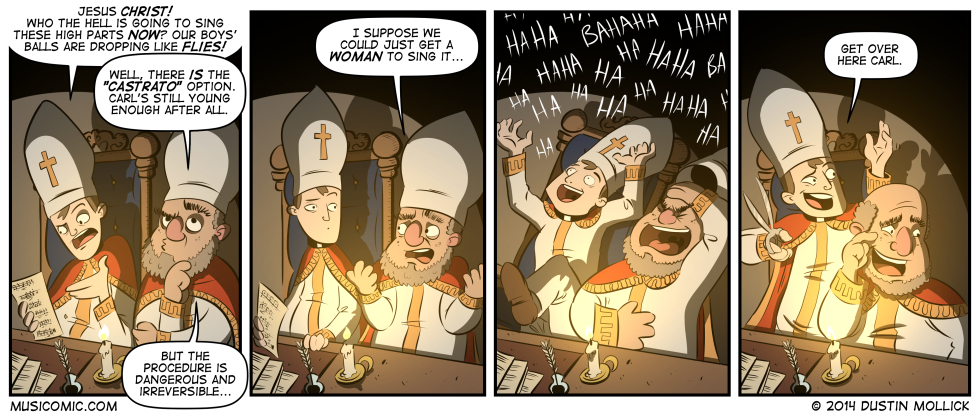
Castrato, also called Evirato, male soprano or contralto voice of great range, flexibility, and power, produced as a result of castration before puberty. The castrato voice was introduced in the 16th century, when women were banned from church choirs and the stage. It reached its greatest prominence in 17th- and 18th-century opera. The practice of castration, illegal and inhumane, produced an adult voice of extraordinary power attributable to the greater lung capacity and physical bulk of the adult male.
The unique tone quality of the voice, coupled with the ability of the intensively trained singers to execute extremely difficult florid ….…..Encyclopædia Britannica
Ethnographic: a branch of anthropology dealing with the scientific description of individual cultures.
Enunciation: a formal announcement or statement explaining a plan or principle clearly
Encumber: restrict or impede (someone or something) in such a way that free action or movement is difficult.
Subtilization: verb [used with object]: to elevate in character; sublimate; to make [the mind, senses, etc.] keen or discerning; sharpen; to introduce subtleties into or argue subtly about;to make thin, rare, or more fluid or volatile; refine.
Footnotes
[1] Sarrasine was published in 1830 within the collection of the short stories and novels collectively entitled La Comédie Humaine, Honoré de Balzac [1799 – 1850] was a French novelist and playwright. La Comédie Humaine, which presents a panorama of French life in the years after the 1815 Fall of Napoleon Bonaparterte, is his magnum opus
[2] Michel Foucault, in full Paul-Michel Foucault (born October 15, 1926, Poitiers,France—died June 25, 1984, Paris), French philosopher and historian, one of the most influential and controversial scholars of the post-World War II period.
[3] Reader-Response Critical Theory: A theory, which gained prominence in the late 1960s, that focuses on the reader or audience reaction to a particular text, perhaps more than the text itself. Reader-response criticism can be connected to poststructuralism’s emphasis on the role of the reader in actively constructing texts rather than passively consuming them. Unlike text-based approaches such as New Criticism, which are grounded upon some objective meaning already present in the work being examined, reader-response criticism argues that a text has no meaning before a reader experiences—reads—it. The reader-response critic’s job is to examine the scope and variety of reader reactions and analyze the ways in which different readers, sometimes called “interpretive communities,” make meaning out of both purely personal reactions and inherited or culturally conditioned ways of reading. The theory is popular in both the United States and Germany; its main theorists include Stanley Fish, David Bleich, and Wolfgang Iser.
[4] Stéphane Mallarmé [1842-1898] French poet, an originator (with Paul Verlaine) and a leader of the Symbolist movement in poetry.
[5] Charles Baudelaire, in full Charles-Pierre Baudelaire (born April 9, 1821, Paris, France—died August 31, 1867, Paris), French poet, translator, and literary and art critic.
Upon obtaining his degree in 1839,Baudelaire chose not to pursue law law at the Lycée Louis-le-Grand.—to his mother’s chagrin—and turned to a career in literature instead.
Baudelaire themes of sex, death, lesbianism, metamorphosis, depression, urban corruption, lost innocence and alcohol not only gained him loyal followers, but also garnered controversy. The courts punished Baudelaire, his publisher and the book’s printer for offending public morality, and as such, suppressed six of the poems.
[6] Pyotr Ilyich Tchaikovsky, Tchaikovsky also spelled Chaikovsky, Chaikovskii, or Tschaikowsky, name in full Anglicized as Peter Ilich Tchaikovsky (born April 25 [May 7, New Style], 1840, Votkinsk, Russia—died October 25 [November 6], 1893, St. Petersburg), the most popular Russian composer of all time.
Despite his many popular successes, Tchaikovsky’s life was punctuated by personal crises and depression. Contributory factors included his early separation from his mother for boarding school followed by his mother’s early death, the death of his close friend and colleague Nikolai Rubinstein, and the collapse of the one enduring relationship of his adult life, which was his 13-year association with the wealthy widow Nadezhda von Meck. His same-sex orientation, which he kept private, has traditionally also been considered a major factor, though some musicologists now downplay its importance. Tchaikovsky’s sudden death at the age of 53 is generally ascribed to cholera; there is an ongoing debate as to whether cholera was indeed the cause of death, or if it was accidental or self-inflicted.
[7] Vincent van Gogh, in full Vincent Willem van Gogh (born March 30, 1853, Zundert, Neth.—died July 29, 1890, Auvers-sur-Oise, near Paris, France), Dutch painter, generally considered the greatest after Rembrandt, and one of the greatest of the Post-Impressionists.
On 22 February 1890, Van Gogh suffered a new crisis that was “the starting point for one of the saddest episodes in a life already rife with sad events,” according to Hulsker. From February until the end of April he was unable to bring himself to write, though he did continue to draw and paint, which follows a pattern begun the previous May, in 1889. For a year he “had fits of despair and hallucination during which he could not work, and in between them, long clear months in which he could and did, punctuated by extreme visionary ecstasy.” On 27 July 1890, aged 37, Van Gogh is believed to have shot himself in the chest with a revolver (although no gun was ever found)
[8] Paul Valéry, in full Ambroise-Paul-Toussaint-Jules Valéry (born Oct. 30, 1871, Sète, Fr.—died July 20, 1945, Paris), French poet, essayist, and critic. His greatest poem is considered La Jeune Parque (1917; “The Young Fate”), which was followed by Album de vers anciens 1890–1900 (1920) and Charmes ou poèmes (1922), containing “Le Cimetière marin” (“The Graveyard by the Sea”). He later wrote a large number of essays and occasional papers on literary topics and took a great interest in scientific discoveries and in political problems.
Paul Valéry occupies a position in the history of French letters that is at once strategic and highly problematic. Critics have affixed to him various labels, all of them partially correct. He has been called the last French symbolist, the first post-symbolist, a masterful classical prosodist, an advocate of logical positivism, and a cerebral narcissist.
Clearly Valéry was heir to the symbolist tradition of another French poet, Stéphane Mallarmé, whom he knew and venerated, who encouraged his early work, and whose other young disciples—Pierre Louis in particular—got Valéry’s work published. On the other hand, he is understood as having broken away from symbolism, as having rejected the cult of poetry for its own sake in favor of a cult of the mind. These views need not be contradictory.
[9] Robert de Montesquiou (1855-1921) aesthete and minor writer, was an intimate of Proust’s and served as something of a model for Charles in Remembrance of things Past.
In Search of Lost Time (French: À la recherche du temps perdu)—also translated as Remembrance of Things Past—is a novel in seven volumes by Marcel Proust (1871–1922). His most prominent work, it is known both for its length and its theme of involuntary memory, the most famous example being the “episode of the madeleine” which occurs early in the first volume. It gained fame in English in translations by C. K. Scott Moncrieff and Terence Kilmartinas Remembrance of Things Past, but the title In Search of Lost Time, a literal rendering of the French, has gained usage since D. J. Enright adopted it for his revised translation published in 1992.
À la recherche made a decisive break with the 19th century realist and plot-driven novel, populated by people of action and people representing social and cultural groups or morals. Although parts of the novel could be read as an exploration of snobbism, deceit, jealousy and suffering and although it contains a multitude of realistic details, the focus is not on the development of a tight plot or of a coherent evolution but on a multiplicity of perspectives and on the formation of experience. The protagonists of the first volume (the narrator as a boy and Swann) are by the standards of 19th century novels, remarkably introspective and passive, nor do they trigger action from other leading characters; to contemporary readers, reared on Balzac, Hugo and Tolstoy, they would not function as centers of a plot. While there is an array of symbolism in the work, it is rarely defined through explicit “keys” leading to moral, romantic or philosophical ideas. The significance of what is happening is often placed within the memory or in the inner contemplation of what is described. This focus on the relationship between experience, memory and writing and the radical de-emphasizing of the outward plot, have become staples of the modern novel but were almost unheard of in 1913.
Roger Shattuck elucidates an underlying principle in understanding Proust and the various themes present in his novel:Thus the novel embodies and manifests the principle of intermittence: to live means to perceive different and often conflicting aspects of reality. This iridescence never resolves itself completely into a unitive point of view. Accordingly, it is possible to project out of the Search itself a series of putative and intermittent authors… The portraitist of an expiring society, the artist of romantic reminiscence, the narrator of the laminated “I,” the classicist of formal structure–all these figures are to be found in Proust…
- The Narrator: A sensitive young man who wishes to become a writer, whose identity is kept vague. In volume 5,The Captive, he addresses the reader thus: “Now she began to speak; her first words were ‘darling’ or ‘my darling,’ followed by my Christian name, which, if we give the narrator the same name as the author of this book, would produce ‘darling Marcel’ or ‘my darling Marcel.'” (Proust, 64)
[10] André Breton [1896 – 1966] was a French writer, poet, anarchist and anti-fascist. Known best as the founder of Surrealism, his writings include the first Surrealist Manifesto (Manifeste du surréalisme) of 1924, in which he defined surrealism as “pure psychic automatism” in its pure state, by which one proposes to express – verbally, by means of the written word, or in any other manner – the actual functioning of thought.” What Breton is proposing is that artists bypass reason and rationality by accessing their unconscious mind. In practice, these techniques became known as automatism or automatic writing, which allowed artists to forgo conscious thought and embrace chance when creating art.
[11] Alienation effect, also called a-effect or distancing effect, German Verfremdungseffekt or V-effekt, idea central to the dramatic theory of the German dramatist-director Bertolt Brecht. It involves the use of techniques designed to distance the audience from emotional involvement in the play through jolting reminders of the artificiality of the theatrical performance.
Examples of such techniques include
[a] explanatory captions or illustrations projected on a screen;
[b] actors stepping out of character to lecture, summarize, or sing songs;
[c] and stage designs that do not represent any locality but that,
[d] by exposing the lights and ropes, keep the spectators in the real world detached from the dramatic world played upon on the stage.
[12] Friedrich Nietzsche, (born October 15, 1844, Röcken,Saxony, Prussia [Germany]—died August 25, 1900, Weimar, Thuringian States), German classical scholar, philosopher, and critic of culture, who became one of the most-influential of all modern thinkers. His attempts to unmask the motives that underlie traditional Western religion, morality, and philosophy deeply affected generations of theologians, philosophers, psychologists, poets, novelists, and playwrights. He thought through the consequences of the triumph of the Enlightenment’s secularism, expressed in his observation that “God is dead,” in a way that determined the agenda for many of Europe’s most-celebrated intellectuals after his death.
